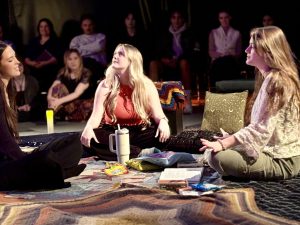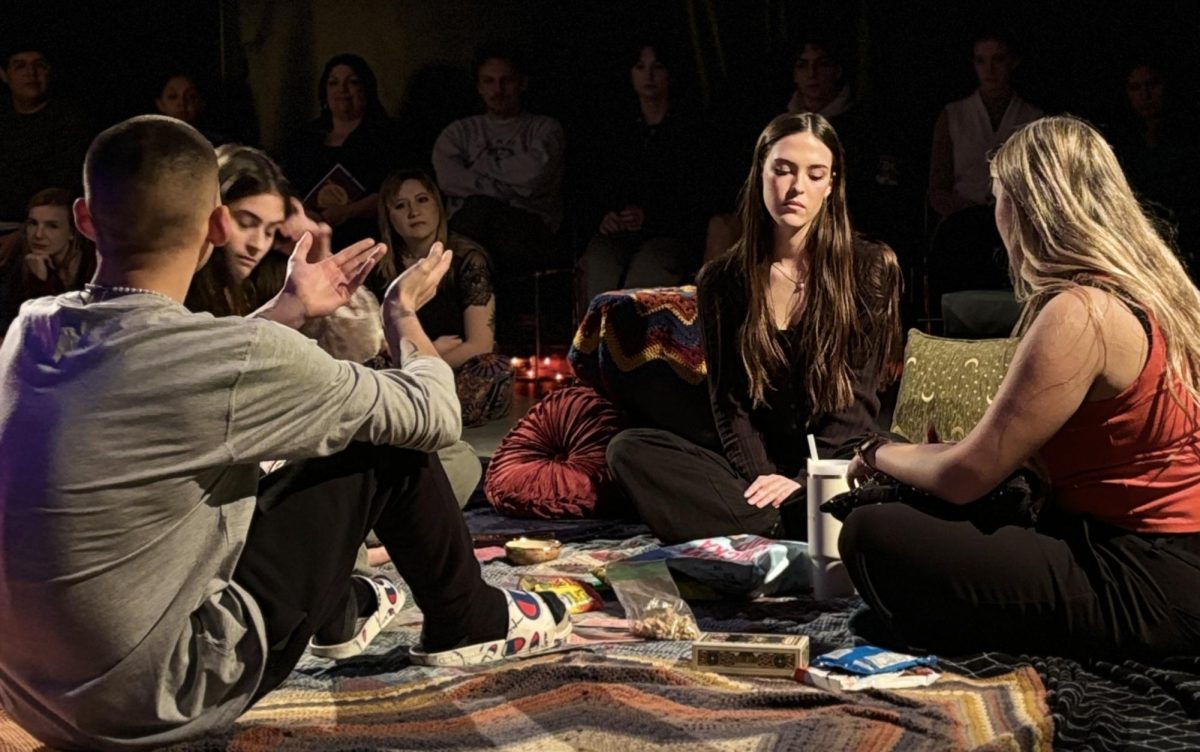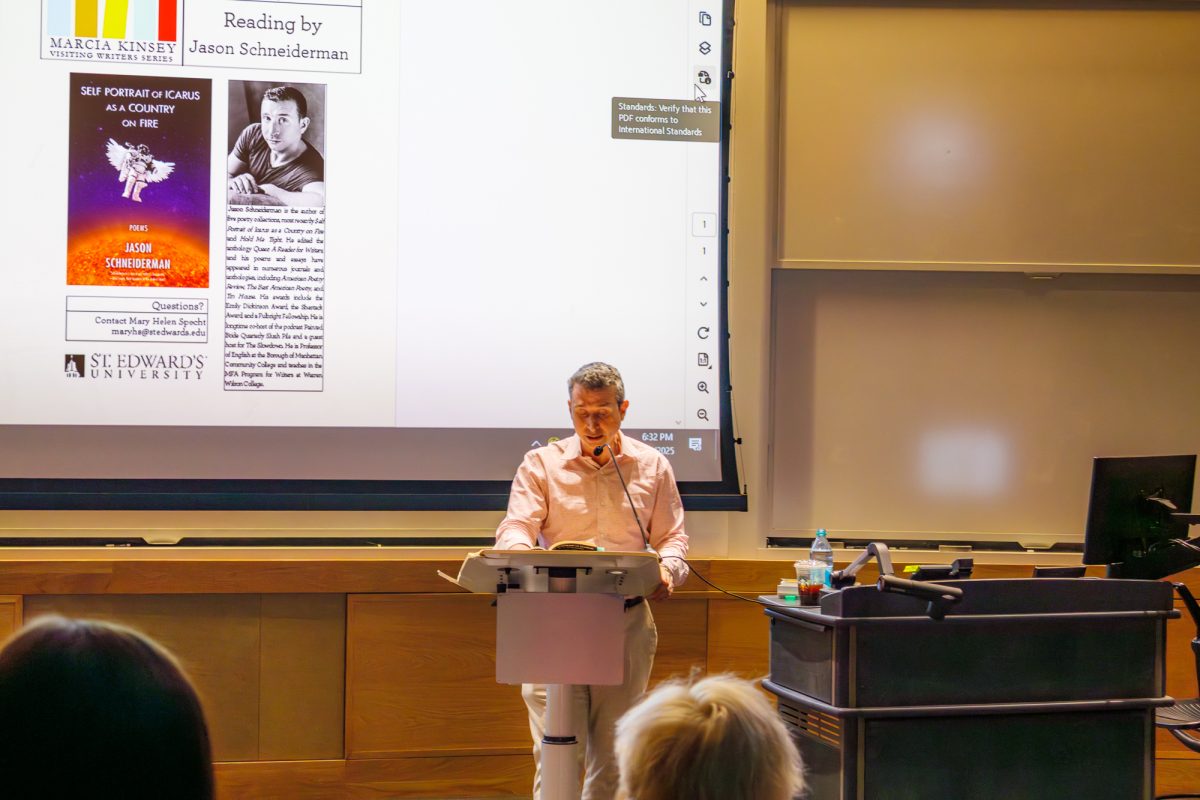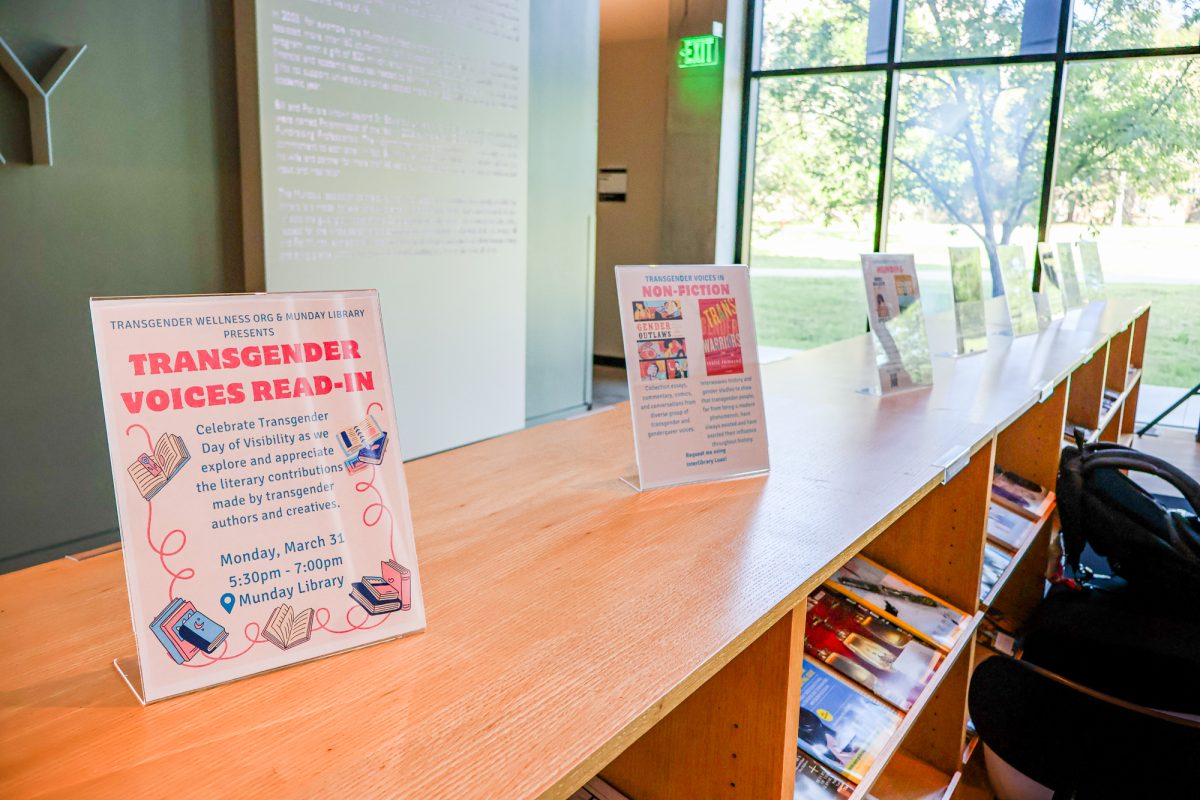Theater senior Marie Ritchie directed and presented her fourth and final play to the hilltop community on Feb. 17 in the Fine Arts Building. “Divine Feminine,” written by alumna Kiley Gaddis, tells the story of three young women navigating friendship through college and how male validation serves as an obstacle in maintaining the sanctity of female friendships.
The play had a very ambient setting. The set was in the middle of the classroom with the audience seated around it, while maintaining the separation between the set and the audience throughout the performance.
The set design was particularly unique, as it was meant to resemble a college student-style room/living space. It included elements such as patterned rugs, copious amounts of throw pillows and blankets as well as typical recreational items such as a bong and prop alcohol bottles. As simple as it was, it worked extremely well with putting the whole production into place, really selling the mood of an honest portrayal of college life.
There were a total of four cast members, three of which were the leading ladies of the production, played by students Tori Petrosino, Eva Maguire and Anna Southern. They put on a strong beginning to the play by displaying a relatable portrayal of feminine connection through conversations about classes, relationships, hookups and other things of the typical “girl talk” nature. This was a big strength of the play as you can truly see how a rewarding, genuine connection of femininity between the three girls is consequentially jeopardized when male validation comes into play.

An important factor of the play’s overall theme was the incorporation of a spiritual connection keeping femininity sacred. Tarot cards and a book of feminist witchcraft were used by the girls as part of their intimate gathering, which was interrupted by the unexpected arrival of a guy, played by student Brandon Espitia, who was invited by one of the girls to their girls-only ritual, disrupting their bond and balance.
This spiritual connection was the most important aspect of the play, as it was supposed to express the overall theme that there are spiritual consequences in valuing male validation over feminine connection. However, after its introduction in the beginning, this aspect felt as if it was discarded through the majority of the play, making it awkward when incorporated into the plot again within the last five minutes. Its very promising purpose felt a bit rushed and the conclusion felt slightly abrupt.
Nonetheless, the technical efforts, sound, writing, directing and casting choices were well thought out. Despite the minor quirks it presented, the play served its purpose well: entertaining and enjoyable throughout its 20-minute running time. “Divine Feminine” encapsulated feminine connection, making a thought-provoking piece.









